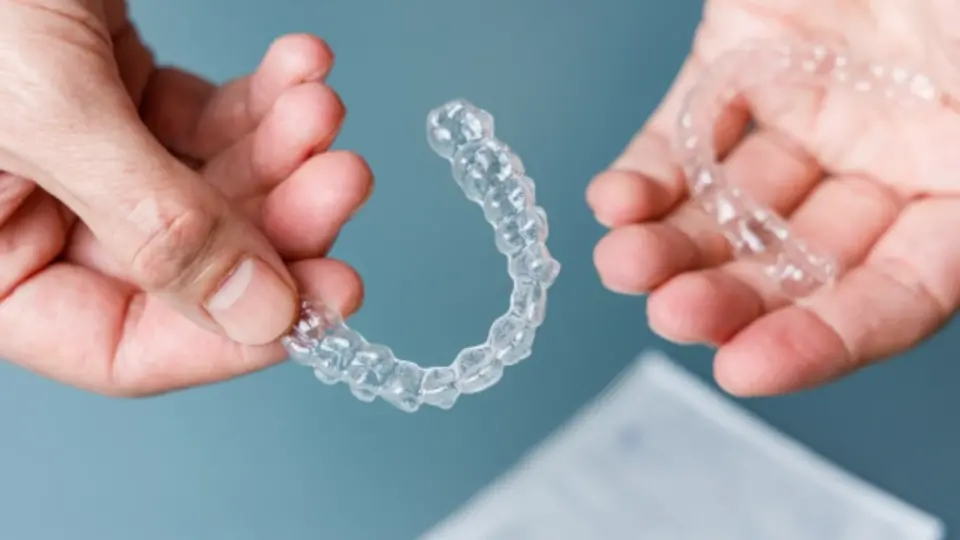When it comes to restoring missing teeth, dental implants have become the gold standard in modern dentistry. These sophisticated devices offer a permanent solution that mimics the function and appearance of natural teeth, revolutionizing the way we approach tooth loss.
Over the past few decades, dental implants have evolved from a groundbreaking innovation to a routine procedure performed by skilled professionals around the world. But how exactly have dental implants evolved, and what makes them such a popular choice for tooth replacement?
What Are The Different Types Of Dental Implants?
Dental implants are not a one-size-fits-all solution. In fact, there are several types of implants available, each tailored to meet the specific needs of patients based on their oral health, the number of teeth missing, and their overall dental goals. Let’s break down the most common types of dental implants:
1. Endosteal Implants
Endosteal implants are the most common type of dental implant. These are placed directly into the jawbone, where they fuse with the bone over time in a process called osseointegration. This type of implant is typically used when there is enough healthy bone to support the implant.
- Materials: These implants are usually made from titanium, which is known for its ability to fuse with bone and its strength.
- Best for: Patients with sufficient jawbone density who are missing one or more teeth.
2. Subperiosteal Implants
Subperiosteal implants are a good alternative for patients who don’t have enough healthy jawbone to support an endosteal implant. Instead of being placed directly into the bone, subperiosteal implants rest on top of the jawbone, beneath the gum tissue.
- Materials: Like endosteal implants, subperiosteal implants are typically made from titanium.
- Best for: Patients with insufficient bone density in the jaw or those who prefer a less invasive option.
3. Zygomatic Implants
Zygomatic implants are a more advanced option used for patients who have severe bone loss in the upper jaw and cannot undergo bone grafting. These implants are anchored into the cheekbone (zygoma) rather than the jawbone.
- Materials: Titanium is also the material of choice for zygomatic implants.
- Best for: Patients with severe bone loss who are looking for an alternative to bone grafting procedures.
4. All-On-4® Implants
For patients who are missing all their teeth in a single arch (upper or lower), All-On-4 implants offer a solution by placing four implants that support a full arch of prosthetic teeth. This method eliminates the need for bone grafting and is a quicker, less invasive alternative for those with substantial bone loss.
- Materials: These implants are typically made from titanium or zirconia.
- Best for: Patients who need to replace all their teeth in one arch with minimal discomfort and downtime.
How Long Does The Dental Implant Process Take?
One of the most common questions patients have about dental implants is how long the process takes. While the procedure can be completed in a few hours, the overall timeline for the entire dental implant process is longer. The length of time needed depends on various factors, including the number of implants being placed, the type of implant, and the patient’s overall oral health.
Step-by-Step Process:
- Initial Consultation and Evaluation (1-2 weeks) During your consultation, your dentist will evaluate your oral health, discuss your treatment options, and determine if you’re a good candidate for dental implants. This may involve X-rays, CT scans, and impressions of your mouth.
- Implant Placement Surgery (1-2 hours per implant) The actual placement of the implant involves a minor surgical procedure to insert the titanium post into the jawbone. This can be done under local anesthesia, and the procedure typically takes one to two hours, depending on the number of implants being placed.
- Healing and Osseointegration (3-6 months) After the implant is placed, a crucial period of healing takes place. This phase, called osseointegration, allows the implant to fuse with the jawbone. Healing time varies from patient to patient, but typically, this takes around 3 to 6 months. During this time, temporary restorations can be used.
- Abutment Placement (1-2 weeks) Once the implant has fully fused with the bone, your dentist will place the abutment — a small connector that links the implant to the prosthetic tooth or bridge. This is a minor procedure that may require local anesthesia.
- Crown or Prosthetic Placement (2-4 weeks) After the abutment is placed, an impression of your teeth will be taken to create the final crown or bridge that will be attached to the implant. This process usually takes a few weeks, but once complete, the implant will be fully functional and ready for use.
Total Time:
From start to finish, the dental implant process can take anywhere from 4 to 9 months, depending on the complexity of your case. However, the results are long-lasting, with dental implants often lasting 20 years or more with proper care.
What Are The Benefits Of Dental Implants?
Dental implants offer a range of advantages over traditional dentures or bridges, making them a preferred choice for many people. Here are some of the key benefits:
1. Permanent and Durable
Unlike dentures, which need to be replaced every few years, dental implants are designed to last a lifetime with proper care. The titanium posts are highly durable and integrate into the jawbone, providing a stable foundation for replacement teeth.
2. Improved Functionality
Dental implants function like natural teeth, allowing patients to eat, speak, and smile with confidence. They restore full chewing ability, so you no longer have to worry about discomfort or food restrictions.
3. Preserved Jawbone Health
When a tooth is lost, the jawbone in the affected area begins to deteriorate due to lack of stimulation. Implants help preserve the bone structure by providing the necessary stimulation during chewing, preventing bone loss and maintaining facial structure.
4. Better Aesthetics and Comfort
Implants are custom-designed to match the appearance of your natural teeth, offering a seamless, beautiful smile. Additionally, they are more comfortable than removable dentures, as they are securely anchored in place, eliminating the discomfort and irritation that often accompanies traditional dentures.
5. No Need to Alter Adjacent Teeth
Unlike dental bridges, which require the filing down of adjacent teeth, dental implants do not affect surrounding teeth. This preserves the natural structure of your mouth and allows for optimal oral health.
How Much Do Dental Implants Cost?
The cost of dental implants can vary greatly depending on factors like location, the number of implants needed, the complexity of the case, and whether additional procedures, such as bone grafts, are required. On average, the cost of a single dental implant can range from $1,500 to $6,000 or more, with additional costs for the abutment and crown.
Here are some factors that can influence the overall cost:
- Type of Implant: Traditional implants tend to be less expensive than more complex procedures like zygomatic implants or All-On-4 implants.
- Additional Procedures: If bone grafting or sinus lifts are needed to ensure there’s enough bone for the implant, the cost can rise.
- Geographic Location: Dental implant costs can vary depending on where you live, with urban areas generally charging more than rural locations.
- Dental Insurance: Many dental insurance plans offer partial coverage for dental implants, especially if the implants are deemed medically necessary. It’s a good idea to check with your provider to understand the specifics of your coverage.
While the upfront cost of dental implants can seem high, they are a long-term investment in your health and appearance. Their durability, functionality, and aesthetic benefits often outweigh the cost of alternatives like dentures or bridges, making them a worthwhile option for many patients.
Dental implants have come a long way since their inception, offering a reliable and effective solution for tooth replacement. With advances in implant technology, patients today can enjoy a more seamless and comfortable experience, with results that last for decades. Whether you’re missing a single tooth or an entire arch, dental implants can give you the confidence to smile again, knowing that your new teeth function just like natural ones.
If you’re considering dental implants, it’s essential to consult with a skilled and experienced dental professional to determine the best approach for your needs. At Palmetto Family and Cosmetic Dentistry, we specialize in helping patients restore their smiles and confidence with high-quality dental implants. Contact us today to learn more about how we can help you get your smile back!
Investing in Your Smile: What to Expect from Our Dental Implant Services
At Palmetto Family and Cosmetic Dentistry, we understand that the cost of dental implants can be a significant consideration. However, when you invest in dental implants, you’re not only getting a replacement tooth — you’re getting a long-lasting solution that enhances both your oral health and quality of life. The upfront cost may seem higher compared to traditional dentures or bridges, but the durability, comfort, and aesthetic benefits make dental implants a smart long-term investment.
Take the First Step Toward a New Smile
Are you ready to take the next step toward restoring your smile? At Palmetto Family and Cosmetic Dentistry, we’re here to guide you through the entire dental implant process, from consultation to post-treatment care. Contact us today to schedule a personalized consultation. Let us help you achieve the smile you’ve always dreamed of with a solution that fits your unique needs and budget.
Call us today or fill out our online form to book your appointment! Your second chance at a perfect smile is just a phone call away.



